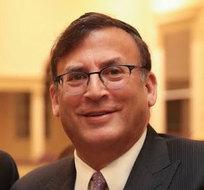|
A courageous survivor of child sexual abuse responds to Rabbi Wallerstein's offensive public comments
anny Waks
August 18, 2016
http://goo.gl/ZlHNW3
 |
| Rabbi Zechariah Wallerstein |
Recently Heshy Deutsch posted a powerful YouTube clip addressing the ongoing child sexual abuse cases, cover-ups and its impact plaguing the Jewish community.
In response, prominent and respected Rabbi Zechariah Wallerstein, founder and director of Ohr Naava, spoke out against the clip. When I first saw Rabbi Wallerstein's response, I remarked that it was infuriating, but that it was also a good opportunity to highlight the ignorance, insensitivity and outright hypocrisy of some within the Rabbinate (in this case a prominent rabbi).
Today my friend and colleague, Sima Yarmush, posted a powerful and thoughtful response to Rabbi Wallerstein's offensive remarks, which I share below with Sima's permission:
This is my response to Rabbi Wallerstein, of Ohr Naava, after his recent video (posted in comments). It was horrifying for me to listen to and watch. Here are my thoughts about it, after I've had a chance to calm down and try my best not to allow myself to experience re-traumatization.
1) Belittling victims – Your tone is dismissive, disrespectful, and insulting to all victims and survivors of trauma, abuse, or otherwise. The theatrical way in which you expressed your thoughts was totally uncalled for. You should know better!
a. If you are going to discuss this topic, understand that your words will affect many sensitive people who are most vulnerable. Please seek professional guidance in the future before attempting to address this population. Being a Rabbi, even of the utmost respected and G-d fearing, does not qualify one to discuss this topic without proper training. Qualified individuals spend countless hours of training and doing research to understand the impact of trauma and the brain and how best to address it.
b. Validating the daily struggle that one goes through after trauma, is paramount to discussing the issue.
2) The analogy of the holocaust is a chutzpa for obvious reasons. Among other reasons, the Jews were being persecuted by anti-Semites intent on annihilating them for no other reason than being Jewish – simple hatred. The atrocities of the holocaust are acknowledged by all. I, and other survivors of abuse, on the other hand, are victimized by people who are meant to love us and then, our perpetrators are protected, again, by people who we are taught to trust. We, as a community, have a problem. Until we acknowledge that we are victims of abuse, we can’t be survivors. You are stopping us from being survivors.
a. As a granddaughter of a survivor of Auschwitz, I’ve witnessed my Bubby cry and grapple with the trauma of being a victim. It is a daily struggle for her; however, throughout, she remains a survivor, upholding the Torah, without diminishing idea that she was, and remains, a victim of the Nazi’s atrocities.
b. Being a survivor does not mean that you can’t discuss the perpetrators, point your finger at them, and hold them accountable. Look at Elie Weisel.
c. We can, and will continue, to point fingers at those who have committed the crimes and atrocities, while saying “never again.”
3) The basic fundamentals of trauma psychology are to acknowledge what you have been through, and then attempt to heal. By you refusing to acknowledge and validate the hardships that victims have been through, you are not allowing them to heal and become survivors.
a. I personally run a support group for women survivors of child sexual abuse. There was discussion about your video in the group. In short, you have re-traumatized many of us, and have caused more damage than good.
b. Healing requires comfort and validation. Pointing fingers at those who abused us is entirely necessary. Aside from it being a part of the healing process, it also ensures - in a deterrent kind of way- that the person in question, and others, do not repeat those crimes.
|
